WCET Dick Jonsen & Mollie McGill Award
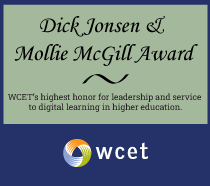 The Dick Jonsen & Mollie McGill Award is given each year to an individual who has made a significant contribution to the higher education digital learning community and WCET during their career. Selection criteria for the annual award include a long-standing willingness to nurture and assist others in the eLearning community, a significant contribution to the field, and innovative service to digital learning students.
The Dick Jonsen & Mollie McGill Award is given each year to an individual who has made a significant contribution to the higher education digital learning community and WCET during their career. Selection criteria for the annual award include a long-standing willingness to nurture and assist others in the eLearning community, a significant contribution to the field, and innovative service to digital learning students.
The Richard Jonsen Award was established in 1998 to recognize the contributions of Richard (Dick) Jonsen, who, as WICHE’s executive director, founded WCET. In 2020, the award was renamed the Dick Jonsen & Mollie McGill Award to honor both Dick Jonsen and Mollie McGill, who both performed so much work to make the WCET Cooperative a reality. Mollie retired in 2020 and was the first WCET staff member to be recognized with WCET’s top honor.
2023 Recipient:
Shannon Riggs, Associate Vice Provost of Educational Programs and Learning Innovation, Oregon State University. WCET Steering Committee Past Chair, WCET Executive Council.
Shannon Riggs, Associate Vice Provost of Educational Programs and Learning Innovation, Oregon State University is also a WCET Steering Committee Past Chair and has served on the WCET Executive Council. Shannon is an excellent example of exactly what WCET hopes to honor with this award. Her commitment to providing high-quality, inclusive digital learning and the time she has devoted to WCET are truly commendable and so appreciated.
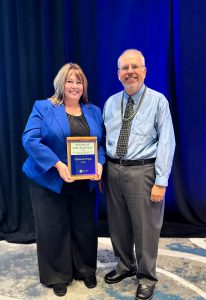
Previous Recipients:
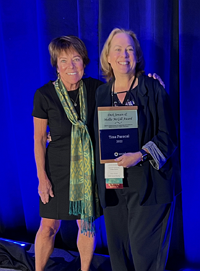 2022 – Tina Parscal, Associate Vice Chancellor for CCCOnline and Academic Affairs
2022 – Tina Parscal, Associate Vice Chancellor for CCCOnline and Academic Affairs
Tina Parscal is an admired leader in digital learning higher education and has held many positions in various sectors of the field.
Tina directs an organization with a statewide imprint focused on accessibility, affordability, inclusion, innovation, and integrity in online education.
As a pioneer working in Open Educational Resources and academic integrity, she has participated in developing guidelines for students and faculty and has benefited all students through dedication to workforce partnerships.
Tina is also an avid supporter of WCET and has served on both the WCET Steering Community and the Executive Council. As a member of a variety of working groups, Tina has contributed her time and expertise to several WCET projects, presentations, webinars, events, papers, and more.
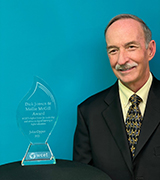 2021 – Dr. John Opper, executive director, distance learning and student services, Florida Virtual Campus
2021 – Dr. John Opper, executive director, distance learning and student services, Florida Virtual Campus
John Opper embodies the dedication and leadership contributions that the Richard Jonsen and Mollie McGill award represents.
John has been a leader in creating statewide distance learning policies and programs affecting Florida’s schools, colleges, and universities. He has also transcended many iterations of the organization that is now the Florida Virtual Campus and has led the distance learning, library, and student support services that are used by Florida’s institutions. As a result, his organizations’ efforts have increased the quality of postsecondary education for students throughout the state.
Additionally, John has been an active WCET member for many years and has contributed to numerous presentations, publications, events, and work groups. His insights and experiences have been critical to helping inform the WCET community of good practices and the lessons we can glean in digital learning.
John is also an aficionado of corvettes and unmatched in his Star Trek trivia knowledge.
 2020 – Mollie McGill, Deputy Director, WCET, Special Adviser, Every Learner Everywhere
2020 – Mollie McGill, Deputy Director, WCET, Special Adviser, Every Learner Everywhere
It is exceedingly difficult to properly thank someone who played such an instrumental role in the creation, foundation, and success of our organization. The Richard Jonsen Award has never before been given to an existing staff member, but our team knew Mollie deserved this award and many more accolades. Prior to her retirement in 2020, Mollie received the last ever Richard Jonsen award. The award was renamed in her honor as part of the acknowledgment of her dedication to WCET.
Mollie served WICHE, WCET, and their members for 32 years. Prior to helping create WCET, Mollie worked successfully on several projects for WICHE. In the mid-80s, the WICHE Commissioners had the idea to share information about the increased use of telecommunications to offer learning across great distances. Mollie was its first assistant director once she helped found the cooperative. During her tenure, Mollie was an amazing leader and outstanding mentor for her colleagues; she was also an incredible friend, as many of us know. WCET and its members are indebted to Mollie for her work with WICHE and WCET and we will forever miss her.
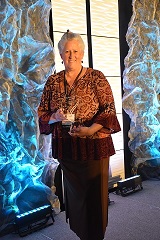 2019 – Dr. Cyndi Rowland, the Executive Director of WebAIM and the associate director at the Center for Persons with Disabilities
2019 – Dr. Cyndi Rowland, the Executive Director of WebAIM and the associate director at the Center for Persons with Disabilities
Dr. Rowland fully exemplifies the career leadership and contributions of Richard Jonsen.
When presenting the award, Russ Poulin, the Executive Director of WCET, said that Dr. Rowland has “worked tirelessly to improve the life of students” and, “if not for her tireless efforts and advocacy, the online opportunities for individuals with disabilities would not be where they are today. She is the unsung hero of the digital accessibility era.”
Richard Jonsen awardees are acknowledged for their significant contributions to the higher education technology community and willingness to assist others in the field. Dr. Rowland founded WebAIM (Web Accessibility in Mind). She has been its director for 20 years and has made it a major contributor and influencer in the field of web accessibility. WebAIM offers workshops, instructional tools, technical training, legal updates, and research to help higher education institutions improve the accessibly of web resources and courses.
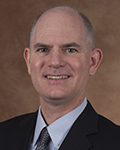 2018 – Dr. Thomas Cavanagh, Vice Provost for Digital Learning at the University of Central Florida
2018 – Dr. Thomas Cavanagh, Vice Provost for Digital Learning at the University of Central Florida
Dr. Cavanagh exemplifies the career leadership and contributions of Richard Jonsen. When presenting the award, Jason Ruckert, Vice Chancellor and Chief Digital Learning Officer, Department of Online Education for Embry-Riddle Aeronautical University – Worldwide, and the chair of the WCET Steering Committee, said that Dr. Cavanagh is “highly recognized in the field of higher education and technology as an innovator, collaborator, and big thinker, where the bottom line of any investment in innovation is to improve student access and success.”
Richard Jonsen awardees are acknowledged for their significant contributions to the higher education technology community and willingness to assist others in the field. Dr. Cavanagh supports educational technology for one of the county’s largest universities, is an award-winning instructional designer, and serves as a leader in multiple higher education organizations such as EDUCAUSE, ELI, IMS Global and OLC. He has served the WCET membership as a steering committee member and is known as a “go-to-guy” when WCET needs assistance with annual meeting panels, leadership events, and webinars.
 2017 – Dr. Peter P. Smith, Professor of Innovative Practices in Higher Education, University of Maryland University College
2017 – Dr. Peter P. Smith, Professor of Innovative Practices in Higher Education, University of Maryland University College
Dr. Peter Smith is truly one of a kind. He is a big-thinker who is passionate about the potential of technology to improve learning outcomes, and creating informed citizens, the scholarship of education, public good, politics, and business, and is the author of several publications about higher education in the U.S. Dr. Smith has been a most valued advisor to the WCET staff, and has always held the health and future of WCET as a core focus.
Beyond WCET, Dr. Smith’s contributions to postsecondary education seem far more than a single individual could accomplish and include:
- Serving as U.S. Congressman from Vermont,
- Serving as the Lt. Governor of Vermont,
- Serving as the Founding President of the Community College of Vermont
- Servings as the Founding President of California State University, Monterey Bay
- Spearheading a personalized degree program for Kaplan and developing new services tailored to adult learners,
- Currently holds an endowed chair position at UMUC to identify and design improved delivery of learning and support services.
Dr. Smith has been a long-time supporter and friend of WCET. In addition to attending and assisting with many WCET events, he served on (and Chaired) the Executive Council, which guides the strategic priorities of WCET.
 2016 – Dr. Robbie Melton, Associate Vice Chancellor of Mobilization and Emerging Technology for the Tennessee Board of Regents
2016 – Dr. Robbie Melton, Associate Vice Chancellor of Mobilization and Emerging Technology for the Tennessee Board of Regents
Dr. Melton fully exemplifies the career leadership and contributions of Richard Jonsen. “Her winning personality has endeared Robbie to multiple generations of learners, faculty, and administrators,” said Mike Abbiatti, Executive Director of WCET and Vice President for Educational Technologies for the Western Interstate Commission for Higher Education (WICHE). “Robbie’s well known mantra of ‘Life is good’ inspires everyone she touches to overcome any challenge in search of the ultimate approach to leveraging current and emerging technologies to significantly improve opportunities for the widest diversity of learners on a global scale. Robbie Melton proves, on a daily basis, that truly ‘Life is good!’”
Richard Jonsen awardees are acknowledged for their significant contributions to the eLearning community and willingness to assist others in the field. Dr. Melton has published and presented on the value of mobile apps for education and the workforce. She is well known as an “Appologist” due to her research and understanding of the best teaching practices and use of mobile apps. Dr. Melton created the Mobile App Education and Workforce Resource Center (50,000+ Apps that have been aligned with over ninety-five subject areas from Pre-K through doctoral work, including workforce careers, professional development and life-long-learning; according to one’s mobile device of choice).
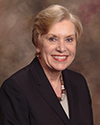 2015 – Dr. Linda Thor, chancellor emeritus of the Foothill-De Anza Community College District
2015 – Dr. Linda Thor, chancellor emeritus of the Foothill-De Anza Community College District
Exuding the principles espoused in the award, Dr. Thor has served the higher education community for over forty years with a pioneering and visionary spirit that has supported success for many students, many of whom might not have had a pathway without the opportunities Dr. Thor set in place.
“Linda saw what was possible with online learning and even in the face of many obstacles, led Rio Salado College into this new learning modality,” said Dr. Chris Bustamante, President of Rio Salado College. “It is because of Linda’s courageous perseverance and commitment to making sure online students have quality services that Rio Salado is now able to serve more than 56,000 students, nearly 30,000 online students, as a single community college.”
Dr. Thor served for nearly 20 years as president of Rio Salado College in Tempe, Arizona. Rio Salado is known for effectively using technology to serve working adults through distance education, offering customized degree and certificate programs for corporations and government, and providing accelerated learning programs, such as dual enrollment for ambitious high school students. During her tenure enrollment increased 252 percent.
A nationally recognized innovator in education, Thor was the sixth chancellor since the Foothill-De Anza Community College District’s founding in 1957. During her tenure, the college district won the bid to lead the statewide Online Education Initiative, a $57 million effort involving California’s 113 community colleges, became one of 15 districts to pilot the community college baccalaureate degree, and received 9 acres from the federal government in a public benefit conveyance to build a new education center.
“Her understanding, creativity and knowledge about both students and how to make online learning work, make her a visionary in our world of technology-enhanced learning,” said Patricia James, Executive Director, CCC Online Education Initiative “and her sense of humor and down to earth thinking are characteristics we all should emulate!”
Dr. Thor has been a long-time supporter and friend of WCET. She served on the Executive Council for two terms and more recently, was appointed by Governor Brown to the WICHE Commission and served on the Commission committee to which WCET reports.
 2014 – Michael Goldstein, Cooley, LLP
2014 – Michael Goldstein, Cooley, LLP
Michael Goldstein, partner at Cooley, LLP was presented the 2014 Richard Jonsen award at the 26th WCET Annual Meeting in Portland, OR on November 20, 2014.
Goldstein spent much of his career with Dow Lohnes, PLLC, where he made significant impacts on higher education in general and online learning in particular. Goldstein and Dow Lohnes were instrumental in working with WCET and others in higher education to change the regulations regarding financial aid for distance education. These changes greatly expanded the ability for distance education students to participate in all federal financial aid programs.
Goldstein and his firm, Dow Lohnes, have been members of WCET since its early days, including bringing both firms (Dow Lohnes, now Cooley) in as supporting members, indicating a commitment to the work of WCET. Goldstein has provided both paid counsel as well as advice, guidance, and insight to WCET on matters of legislation, court rulings, and political dealings that have an impact on distance learning.
Goldstein has been active in the development of online learning and in guiding the evolution of various kinds of institutional ventures creating innovative approaches by combining the resources and interests of the non-profit, public and for-profit postsecondary communities. Goldstein holds a law degree from New York University, a B.A. in Government from Cornell University, and was a Loeb Fellow in Advanced Urban and Environmental Studies at Harvard University.
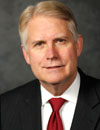 2013 – Fred Hurst, Northern Arizona University
2013 – Fred Hurst, Northern Arizona University
Dr. Fred Hurst, senior vice president for Extended Campuses at Northern Arizona University, has been honored with the Richard Jonsen Award at the WCET Silver Anniversary annual meeting on November 15, 2013 in Denver, CO. Hurst, a long-time educator and innovator, is known for his leadership in a number of transformative initiatives in American post-secondary education. Most recently, he has led the administrative and faculty teams that have created a ground-breaking “university within a university” at Northern Arizona University through their new Personalized Learning Initiative. This program is one of four in the nation selected by the Higher Learning Commission to evaluate direct assessment alternatives for degree completion. Also under Fred’s direction, the Northern Arizona University Extended Campuses have developed an innovative accelerated degree program for adult students, growing Extended Campus enrollments to over 7,700 per semester.
His career in higher education and technology includes serving as the Founding Executive Director of the Florida Public Postsecondary Distance Learning Institute where he developed “Florida’s Campus,” a web-based electronic catalog of all of Florida’s public higher education distance learning courses and degree programs. In the late 1980s, Hurst and his colleagues helped establish the Educational Network of Maine, one of the country’s first statewide educational video networks that served higher education, K-12 education and libraries. Recently he was appointed by the U.S. House of Representatives to serve on the Advisory Committee on Student Financial Assistance. His service to WCET includes serving on the Steering Committee, Executive Council, and on the faculty for WCET’s Managing Distance Education summer programs.
He received his Ph.D. in Higher Education Policy and Philanthropic Studies at Union Institute and University, Master’s in Public Administration at Wichita State University, and Master’s and Bachelor’s degrees in Instructional Systems Technology and Telecommunications from Indiana University Bloomington.
 2012 – Rhonda Epper, Colorado Community College System
2012 – Rhonda Epper, Colorado Community College System
Rhonda Epper, assistant provost at the Colorado Community College System, is the 2012 recipient of WCET’s top award, the Richard Jonsen Award, given annually to a WCET member whose career has been committed to improving postsecondary educational programs and services through innovative uses of technology. The award also recognizes Epper’s exceptional service to WCET.
During her tenure as the co-executive director of CCCOnline, Epper spearheaded several important initiatives to remove barriers and improve opportunities for student success in postsecondary education, including one of the country’s early e-textbooks initiatives, a technology-assisted, accelerated remedial math program, a comprehensive set of policies, tutorials, and resources for students as well as faculty to promote academic integrity in online education, and the expansion of an international remote, web-based science lab project.
As chair of WCET’s Common Interest Group on Academic Integrity and Student Authentication, Epper led in the development of “Best Practices to Promote Academic Integrity in Online Education,” now used by institutions nationally as guidelines for program improvements. Epper served as WCET Steering Committee Chair and Executive Council Chair.
She received her Ph.D. in Higher Education Administration from the University of Denver; MBA from the University of Denver-Daniels College of Business; and BBA in Finance from the University of Texas at Austin.
 2011 – Michael Offerman, Capella University
2011 – Michael Offerman, Capella University
Mike Offerman is President Emeritus at Capella Education Co. He had served as President of Capella University from 2001 through 2007 and returned as Interim President from 2010-2011. Offerman is honored with this lifetime achievement award for his impact and commitment in promoting access, quality, accountability, and consumer information for adult working students. He led the expansion of all aspects of the university’s infrastructure, policies, and services that enabled the university to grow its student enrollments from 2,500 to 22,500 in less than seven years. He promoted innovation in areas of student services, program improvement, and quality measurements within Capella’s online programs which received numerous awards, including WCET’s Outstanding Work (WOW) award.
Offerman championed the concept of reporting student learning outcomes at the program level to provide adult learners with relevant data on student completion and also led the development of a sophisticated data modeling system used to identify when certain interventions are needed to encourage student persistence. This pioneering work in learning outcomes and data analytics set the stage for the Transparency by Design initiative and College Choices for Adults website that is managed by WCET. He served as chair of the Executive Committee for Transparency by Design from 2008-2010.
He had a 15-year career with the University of Wisconsin, serving as dean and executive director for continuing education. There he is credited with guiding the University through the transition from correspondence to online. He led the development of a new Center for Learning Innovations which supported all 15 University of Wisconsin institutions in the delivery of online degree programs.
He has been a long-time contributor to WCET in his leadership capacity with Transparency by Design and also as a Steering Committee member. In 2009, Offerman accepted WCET’s request to be nominated for the U.S. Department of Education’s Negotiated Rulemaking Committee on Accreditation, where he served as the primary negotiator on behalf of distance education throughout that process. He thanks WCET for this award in this short audio clip.
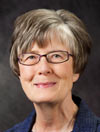 2010 – Sue Maes, Kansas State University
2010 – Sue Maes, Kansas State University
Sue Maes serves as Dean of the Division of Continuing Education at Kansas State University. She provides an important leadership role to the campus, faculty, and to adult learners to assure that the needed educational opportunities are available. She also serves as Co-Director of the Institute for Academic Alliances, which was established to encourage and assist higher education institutions in developing and delivering collaborative online academic programs. Maes also served as President of the University Continuing Education Association, a national organization made up of the public and private accredited colleges and universities serving the expanding numbers of adults seeking continuous learning opportunities. She was a founding member of two organizations: the Rural Clearinghouse for Lifelong Education and Development, a national organization that worked to advocate access for rural adults to higher education and the Association of Community Based Organizations, a national organization dedicated to assisting low-income and minority education organizations. In 2000 she was elected into the International Adult and Continuing Education Hall of Fame and later served as the Hall’s president. Her engagement with WCET began in the organization’s earliest years, when she and other WCET members helped institutions and states to extend educational programs and services via videoconferencing networks, assisting them with technical, programmatic, and student support services requirements. Maes guided the creation of several WCET programs that continue today, including a consortium for doctoral nursing education and an eLearning consortia wiki. Here is her acceptance video.
 2009 – Hae Okimoto, University of Hawai’i System
2009 – Hae Okimoto, University of Hawai’i System
Hae Okimoto has been with the University of Hawai’i. System since 1988, when she was hired to lead the ten-campus University of Hawai’i System’s initial distance education endeavor using interactive television. Some two decades later, she led the University’s migration from a commercial course management system to a systemwide open source learning and collaboration environment that is integrated with enterprise systems to support: classroom instruction, hybrid courses, distance learning, research collaborations, and social networking. Okimoto has systemwide responsibility for distance and eLearning support including: all related technologies, IT customer services, faculty development, and the multi-campus student information system. Through her position as Board Member to the American Association for Higher Education she was active in promoting and elevating the national higher education policy discussions to include topics of educational technology and distance education as increasingly important issues. Today, she continues to exhibit that leadership as a new member of the NorthWest Academic Computing Consortium’s Board and one of its most active leaders in eLearning related matters. Okimoto’s service to WCET dates back to 1989 when it was established. She co-authored one of the very first WCET publications, developed by members for members, a guide for those engaged in faculty development for distance learning. She has served on the WCET Annual Conference Planning Committee and Steering Committee numerous times over the past twenty years. Most recently, Okimoto served as co-chair of WCET’s new professional development program (called CatalystCAMP – “Changing Academic Methods and Practices”). She is recognized worldwide for her management and leadership of important educational technology developments in higher education.
 2008 — Ellen Wagner, Sonoma Partners, LLC
2008 — Ellen Wagner, Sonoma Partners, LLC
Over the years, Ellen Wagner has assumed many roles, including: faculty person, administrator, consultant, or corporate executive. In all of these professions, she has been a champion of the effective uses of technologies in teaching and learning. While on sabbatical from the University of Northern Colorado, Wagner ran a large research project on telecommunications policy for WCET. After leaving the university, she created her own company that supported both institutions and industry in creating technology-mediated learning modules and courses. Over the past several years, she has served as chief of the higher education sector for both Macromedia and Adobe. In all that time, Wagner has been an avid supporter of WCET and recently completed a term as a member of WCET’s Executive Council. Wagner has long been a noted futurist, giving keynote speeches on what is coming in the realm of eLearning in higher education. All the while she focuses on the practical realities facing educators.
 2007 — Norman Coombs, Equal Access to Software and Information
2007 — Norman Coombs, Equal Access to Software and Information
As a professor, Norman Coombs learned the power of using educational technologies while teaching history at Rochester Institute of Technology. Since 1993, Coombs, who is himself blind, has led EASI (Equal Access to Software and Information ), a nonprofit organization devoted to teaching educators about accessibility techniques for educational technologies. He is an outspoken advocate for adaptive technologies and the use of universal web design principles to meet the needs of disabled students, as well as a mentor to those coming up in the field. Though officially retired, Coombs continues to teach online seminars on adaptive technologies and policies.
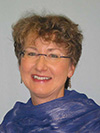 2006 — Sally Johnstone, Winona State University (MN)
2006 — Sally Johnstone, Winona State University (MN)
In 1989, Sally Johnstone was named the first executive director of WCET. Under her 17 years of leadership, WCET grew from a vague idea for cooperation among the 15 WICHE states to a membership organization that is recognized both nationally and internationally. Johnstone has authored dozens of articles, book chapters, and major reports on distance and distributed learning. Johnstone’s special areas of expertise include: the effects of the integration of technology on higher education institutions and system organizations, collaborations, quality assurance issues, project development and evaluation, open educational resources, and generally supporting WCET members in the planning for and implementation of eLearning programs. In August 2006, Johnstone left WCET to become the vice president for Academic Affairs at Winona State University in Minnesota.
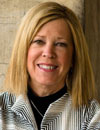 2005 — Darcy Hardy, UT TeleCampus (TX)
2005 — Darcy Hardy, UT TeleCampus (TX)
As the assistant vice chancellor for Academic Affairs and the director of the UT TeleCampus for the University of Texas System, Darcy Hardy has built an award-winning collaborative model for providing centralized service and support for the delivery of eLearning. Hardy is a recognized leader across the field of online learning. She was a founding member of the Texas Distance Learning Association. From 2002-2003, Hardy served as the onsite host for the Institute for Managing and Developing eLearning, presented by WCET. She has also been a member of the WCET Steering Committee. In October 2003, Hardy was elected president of the United States Distance Learning Association.
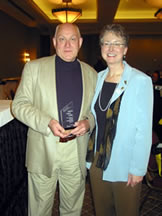 2004 — Steve Crow, Higher Learning Commission
2004 — Steve Crow, Higher Learning Commission
At the time of the award, Steve Crow was the executive director of the Higher Learning Commission. Crow has been an innovative force in the acceptance of distance learning by both the traditional higher education and the accrediting communities. In addition, Crow has made major contributions to both WCET and the field of eLearning. He was instrumental in the creation and adoption of WCET’s Principles of Best Practice for Online Degree Programs. He has given generously of his time to WCET, serving as the chair of the Steering Committee in 2002 – 2003 and chair of WCET’s Executive Committee 2003-2004. He also created a track for WCET sessions at the Higher Learning Commission’s Annual Conference. Crow’s work in this area is seldom recognized.
 2003 — Bob Albrecht, EDUCAUSE (CO)
2003 — Bob Albrecht, EDUCAUSE (CO)
Bob Albrecht has served universities in Montana, Oregon, and Colorado. While he was working on academic technology issues for the University of Colorado System, WCET was formed and Albrecht became one of WCET’s first Steering Committee Chairs. He has helped the organization many times by stepping into to facilitate a discussion, workshop or recently, even a staff retreat. When Colorado’s Governor Romer needed a co-leader for the Western Governors’ University, Albrecht agreed to the assignment. When he tried to retire, EDUCAUSE enlisted his services and he also agreed to serve as a WCET Senior Advisor.
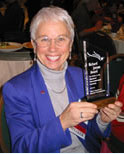 2002 — Muriel Oaks, Washington State University
2002 — Muriel Oaks, Washington State University
Muriel Oaks is the dean of the Center for Distance and Professional Education at Washington State University (WSU). During her career, Oaks has worked hard to build bridges, find common ground, and promote collaboration among groups with disparate needs and agendas. At WSU, she launched distance degree programs, pioneered the Washington Higher Education Telecommunications System (WHETS), and helped actualize WSU’s branch campuses. Frequently called to serve in a national capacity, Oaks has both chaired WCET’s Steering Committee and served on WCET’s Executive Committee.
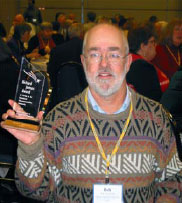 2001 — Robert Threlkeld, California State University, Fresno
2001 — Robert Threlkeld, California State University, Fresno
Robert Threlkeld retired as dean of learning and technology at California State University, Fresno in summer 2000. Previously serving at the University of Maine and Cal Poly Pomona, Threlkeld was involved in nearly all aspects of distributed learning throughout his career. Threlkeld served as academic dean for WCET’s annual Institute for Managing and Developing eLearning served as a senior associate for WCET, consulting on projects.
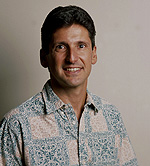 2000 — David Lassner, University of Hawai’i
2000 — David Lassner, University of Hawai’i
David Lassner is the director of information technology for the University of Hawai’i and is responsible for computing, telecommunications, and instructional technology support for the statewide system of public higher education comprised of ten campuses and five education centers on six islands. Lassner is a founding member and past-chair of WCET’s Steering Committee and is active in other national and international organizations, such as: the Internet Society, Internet2, EDUCAUSE, the Sierra Club, the Pacific Telecommunications Council, and ThinkQuest. Lassner has also been active with national funding organizations like NSF and NTIA helping to get money into the hands of technology innovators. Lassner offered the University of Hawaii servers to host the WCET listservs for many years.
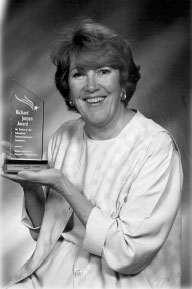 1999 — Charlotte Farr, University of Nevada, Las Vegas
1999 — Charlotte Farr, University of Nevada, Las Vegas
At the time of the award, Charlotte Farr was the director of distance education at University of Nevada, Las Vegas (UNLV) and had been an outstanding advocate for distance learning at the University of Wyoming and at UNLV. She has given freely of her time to colleagues in both of these states and to others in the WCET membership by assisting in the development of solutions to common problems, sharing training resources, and pushing policy discussions.
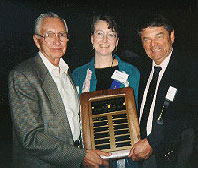 1998 — John Witherspoon, Senior Advisor, WCET (CO)
1998 — John Witherspoon, Senior Advisor, WCET (CO)
John Witherspoon (left, in photo) of San Diego, CA, was the first recipient of the Richard Jonsen Award. During his many years of service to the distance learning community, Witherspoon has made major contributions to the field including: serving as the founding Chair of WCET’s Steering Committee, serving as the first principal executive for television for the Corporation for Public Broadcasting, the founding Chairman of the Board of Directors of the National Public Radio, serving as the first president of the Public Service Satellite Consortium, directing The Pacific Dialogue, a forum for pacific region interests in telecommunications, assisting in the design and implementation of the Western Governors University, teaching students both on and off campus in innovative ways as a professor of telecommunications at San Diego State University, and authoring two major publications for WCET and contributing to many more.